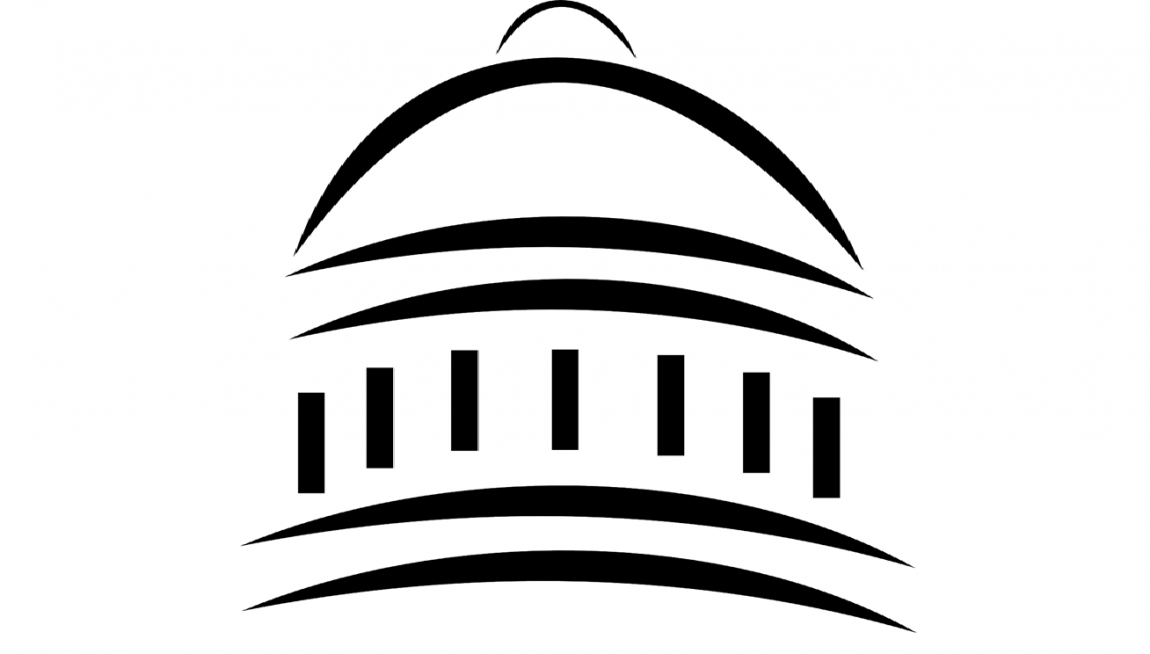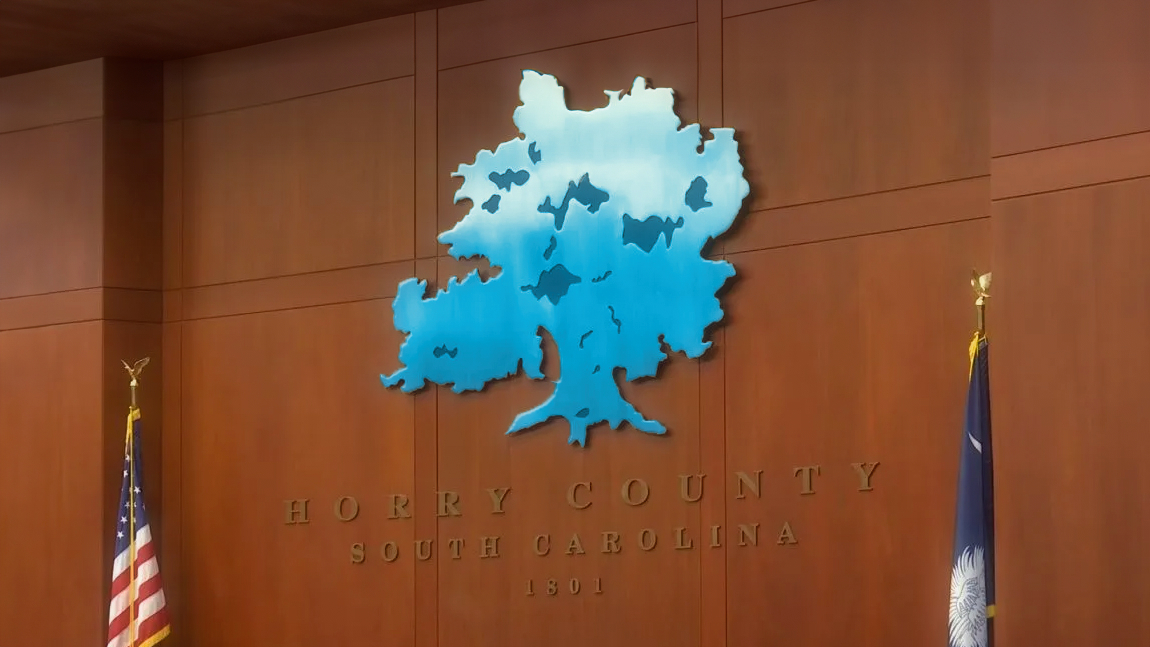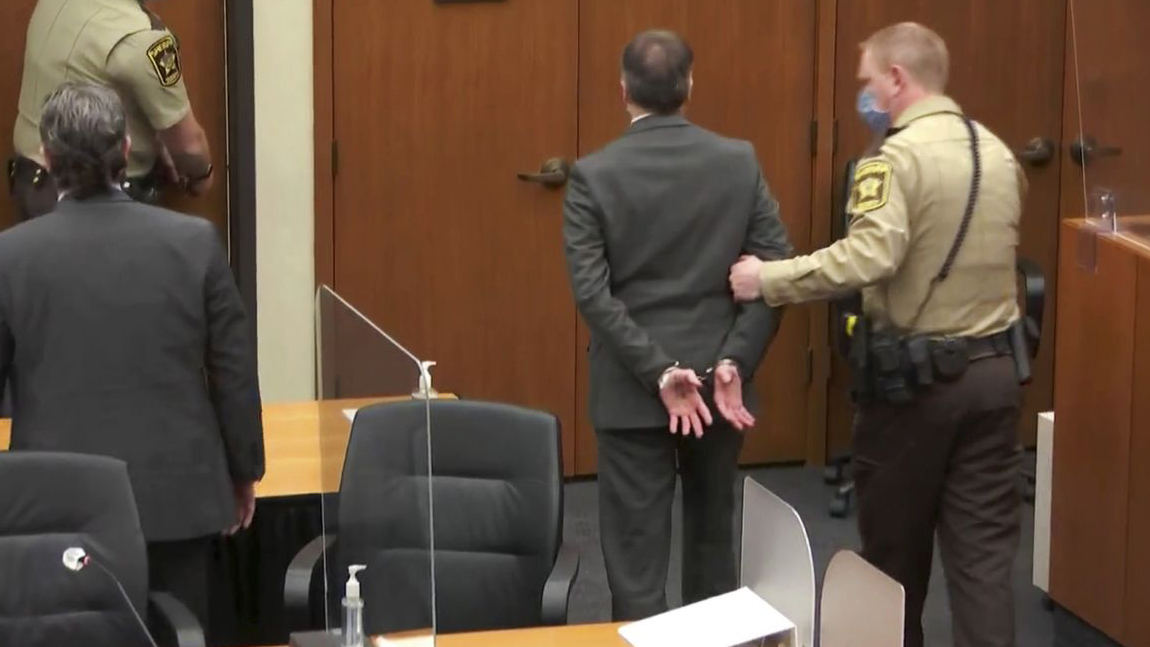Legislative & Issues Update
February 2020
Each month The North Strand Democrats Club provides a Legislative and Issues Update compiled by David Higham. HCDP will publish these updates as they are received.
HORRY COUNTY GOVERNMENT/LOCAL ISSUES
Horry County Councilman Paul Prince not seeking another term: Prince has served on the Horry County Council since 2002, and before then for 10 years beginning in 1983. Prince represents District 9 which covers Loris and Longs in northern Horry County. (MyHorryNews.com 2/14/20)
County vote on Second Amendment Sanctuary Measure postponed until March: The Horry County Council proposed ordinance declaring Horry Council is opposed to any perceived threat to rights to own guns, had its 2nd Reading postponed by one month to the Council’s March 10 meeting. The draft ordinance states that Horry Council will not enforce any gun control laws passed by the South Carolina state government. The proposed ordinance, sponsored by Councilman Al Allen, is like laws passed in Virginia and in other localities. Allen requested the postponement due to his inability to attend the Council’s February meeting. (The Sun News 1/28/20; My Horry News 2/13/20)
Voter Registration Up: Horry County saw its voter rolls increase by 8,492 since July 2019, the greatest 6-month growth of any South Carolina county. Across the state voter rolls grew by 70,715 names in the last six months, some 6,000 more than the bump seen in 2016 when both major political parties held presidential nominating contests. (Post and Courier newspaper 2/5/20)
STATE / SC LEGISLATURE
K – 12 Education Reform: The first two months of the Senate session has been dominated by almost daily debate on an education reform bill. Dozens of floor amendments have been proposed with some being accepted into the 65-page Bill. Lawmakers added up to $3,300 yearly in scholarships for education majors paid for by lottery money. The bill doubles the amount of money given to teachers to buy supplies to $550 annually. The bill would also pay fees for certifications for first-time teachers and provide daily breaks for teachers to plan without interruption from students. When the Legislature debates this year’s budget proposal, they will review Governor McMaster’s plan for an across-the-board $3000 raise for every SC public school teacher.
The proposed Education Reform bill would also allow failing school districts to be taken over by the State. A takeover could take place if a school or school district is under-performing for three consecutive years, a school’s accreditation is denied, or there is financial mismanagement. Dozens of other bills are awaiting Senate floor action as extended debate on the Education Reform bill has taken over the floor. Proposals to limit or end debate on the bill have failed twice in recent weeks.
SC for ED, the teacher organization that rallied last year’s 10,000 member march at the State Capitol, is threatening to do so again if progress is not made on their requests, including: lowering class sizes, doing away with many student testing requirements, and providing teachers with unencumbered planning time. (Post and Courier 2/13/20; 2/16/20 and 2/20/20)
Meanwhile, the SC House has approved piece-meal legislation addressing selected education issues, including H 4753 providing a “Teacher Bill of Rights”; H 4403 a bill to strengthen anti-bullying policies; H 3257 to update public school instruction on mental, emotional and social health, and H 3199, a bill to require instruction on student loans in high school financial literacy programs. (SC Legislature Online 1/28/20 and 2/4/20)
State Budget heads to House Floor: The SC’s $10 billion state spending plan cleared committee on February 20 and heads to the House Floor for debate. Among its provisions:
- Creates and provides $25 million for a state disaster relief fund that can be tapped for floods, storms or other disasters either before federal help comes or if the damage isn’t widespread enough for federal money.
- Provides an additional $100 million for SCDOT to repair rural roads. This new money is outside the road work that is being done by increases in the state’s gas tax. Counties would determine how $23 million of this new money would be spent.
- Provides $33 million in state worker raises. This is enough to give every state employee a 2% raise, but agency heads will determine who gets raises and how much.
- Provides an across-the-board $3,000 raise for all public-school teachers.
- Set-asides $100 million in tax relief. The SC Legislature will determine later if this will be in the form of rebates issued to taxpayers, a cut in the income tax rates, or some combination of both ideas.
- Provides $100 million in safety upgrades at state prisons, salary increases for state law enforcement agencies, and free health check-ups for state employees.
(Post and Courier, 2/21/20)
Santee Cooper: The SC Legislature received a report laying out three potential paths forward for Santee Cooper, the state-run water and electric utility. The lawmakers will soon need to pick among selling Santee Cooper to Florida-based NextEra Energy, handing over part of the management of the utility to Virginia based Dominion Energy, or keeping Santee Cooper under state control. (Post and Courier, 2/13/20) The House and Senate’s budget committees each must pick their preferred bid within the next month. The decision will then rest with the entire Legislature, and debate could last into the summer or beyond. (Palmetto Politics 2/12/20)
According to a Post and Courier newspaper analysis, “NextEra Energy wants to bypass SC’s utility regulators to charge customers $2.3 billion on new power plants even if those projects are canceled.” Some legislators have said that provision “could sink the sale”. (Post and Courier, 2/16/20)
The potential sale of Santee Cooper may also be deemed unnecessary as the utility has reached a tentative legal settlement that could secure cash refunds for its customers, and thus hold off its potential sale. A proposed $520 million settlement, reached on February 20, would reimburse the ratepayers of Santee Cooper and South Carolina’s 20 electric cooperatives for the money they poured into the failed V.C. Summer nuclear project in Fairfield County. And, in return, Santee Cooper could be freed form the class-action ratepayer lawsuit that threatens to bankrupt the utility. The complicated legal settlement, which would also involve payments by
Dominion Energy could fall apart as negotiations continue. (Post and Courier 2/22/20)
S 867 Proposed Bill to allow the counting of absentee ballots to begin the day before the election. Passed Senate on February 20 and sent to House. (SC Legislature online 2/20/20)
H 4411 Proposed Bill to make changes to voting precincts in Horry County, deleting four precincts, and adding eight precincts. Passed Senate and House. Joint House/Senate Conference Committee appointed to resolve differences in the bills. (SC Legislature Online 2/20/20)
H 3357 Proposed change to drivers’ license for hearing impaired. Legislature approved and sent to the Governor a bill that would add a notation to driver licenses that the vehicle owner may be deaf or hard of hearing. (SC Legislature online 2/6/20)
H 4209 Proposed Bill that creates a South Carolina Farm Aid Fund. The Fund would be eligible to receive state appropriations and private donations to operate a grant program providing financial assistance to farmers in the event of disastrous flooding or other severe weather events. Passed House and sent to Senate. (SC Legislature online 2/5/20)
Four SC House representatives storm out of session in protest. Four Republican House members stormed out of the Statehouse on Wednesday February 5 to denounce the Legislature’s long-held practice of electing judges by simple voice votes that don’t record the stance of individual lawmakers. South Carolina and Virginia are the only states with legislative election of judges. (Post and Courier 2/5/20; 2/7/20)
Governor’s Appointment to lead Veterans: Governor McMaster announced that retired Army Maj. Gen. William Grimsley as his choice to lead the new S.C. Department of Veterans Affairs. (Post and Courier, 2/12/20)
FEDERAL / US CONGRESS
Trump’s proposed budget: President Trump has repeatedly said that he wouldn’t touch Medicare, but his new budget plan does exactly that. The budget proposal submitted to Congress calls for a 5 percent cut in domestic spending, which covers almost all government agencies except the Department of Defense, while reducing payments to entitlement programs such as Medicare and Medicaid by $1.6 trillion over the next decade.
- Medicare: Trump Administration officials argue that the plan for slowing “growth” in Medicare won’t impact benefits, but rather how providers like hospitals are paid. Tricia Neuman, with the nonpartisan Kaiser Family Foundation, noted that while the plan would not actually cut benefits for current enrollees, it would make it harder for some seniors to qualify for long-term care services.
- Medicaid: Under the plan $920 billion in future Medicaid spending would be cut.
- The plan further targets safety net programs for the poor, domestic programs like clean energy and student loan subsidies. It slashes funding for overseas military operations to save $567 billion over 10 years but adds $1.5 trillion over the same time frame to make the 2017 tax cuts permanent law.
With Democrats controlling the House, and this year being an election year, it is highly unlikely that Trump’s budget plan would be approved. However, if Trump is reelected, he “clearly has Medicaid cuts in his sights.” (ABC News 2/11/20; The Hill newspaper 2/12/20; Post and Courier 2/11/20)
Border Wall: The Trump Administration announced plans to divert an additional $3.83 billion in Department of Defense funding to border wall construction. The most senior Republican on the House Armed Services Committee, Rep. Mac Thornberry from Texas, slammed the proposal as unconstitutional. (CNN, 2/13/20)
HJ Res 79 Equal Rights Amendment to Constitution: The House passed along party-lines to replace a deadline that expired in 1982 for states to vote on ratification of the 1972 Equal Rights Amendment. The bill sets a new, open-ended deadline over Republican arguments that the ERA died 38 years ago. Rep. Rice voted NO. (Post and Courier newspaper 2/6/20)
Anti-Abortion Bills set for Senate Votes: Senate Republican Leader Mitch McConnell has set up votes for later this month: a bill banning abortions after 20 weeks, and the “Born Alive Abortion Survivors Protection Act”. Both bills have been rejected by the Senate in recent years but forcing votes on them in an election year could help boost enthusiasm on the right for keeping the Senate in Republican hands, according to recent reporting. (Politico News, 2/13/20)
DC Statehood: For the first time since 1993 a Congressional committee has advanced legislation, HR 51, which would make most of the area comprising Washington DC the 51st state, and give the more than 700,000 residents of the city full congressional representation with one House member and two senators. Proponents in favor of the bill argue that more people live in Washington D.C. than in Vermont or Wyoming yet is represented in Congress with only a single House Delegate who is prohibited from voting on final legislation. If approved by the full House, the bill has little chance of advancing in the Republican controlled Senate as the GOP would be disinclined to reward the heavily Democratic WDC electorate and help tip the Senate’s controlling majority in favor of the Democrats. (Roll Call newspaper 2/11/20)
THE COURTS
Senate Republicans wanting to confirm more judges will have to work with Democrats: Since President Trump took office, the Senate has confirmed 192 judges. Most were from states with at least one Republican senator or circuit judges whose jurisdiction crosses many states. That’s important because home-state senators, regardless of their party affiliation, traditionally have been able to sign off on, or block, a judicial nomination through the Senate’s so-called blue slip process.
Senate Judiciary Committee Chairman Lindsey Graham has said he will continue honoring blue slips on the district level. If that Senate protocol is honored than the president will need to make selections supported by Democrats. Of the 72 district judge vacancies remaining, 51 are in states with two Democratic senators. Less than 20 percent of district court judges confirmed so far have hailed from states with two Democratic senators. (Roll Call newspaper, 2/11/20)
A divided Supreme Court upheld a rule that will make it more difficult for immigrants to obtain legal status if they use public benefits like food stamps and housing vouchers. The ruling has the potential to reshape legal immigration by limiting access to green cards for lower-income immigrants. The ruling will go into effect immediately according to the US Citizenship and immigration Services. (CNN 2/21/20)






